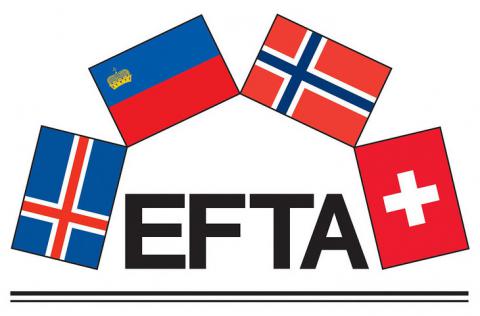In September delegates from the European Free Trade Association (EFTA) met in Washington with representatives from the United States Trade Representative (USTR), as well as with representatives from the US House of Representatives and the US Chamber of Commerce.

In 2013 EFTA and the USTR established a Trade Policy Dialogue which seeks to allow both parties to maintain an open exchange of dialogue in the midst of negotiations between the US and EU for a Transatlantic Trade and Investment Partnership (TTIP) focusing on possible implications for EFTA. EFTA member states Iceland, Liechtenstein, Norway, and Switzerland are not members of the EU but their economies play distinctive roles in the European marketplace. As a trading bloc, EFTA is the 7th highest global trader in commercial services and 12th in trade in merchandise.
The delegates met with Dan Mullaney, Assistant USTR for Europe and the Middle East and US Chief Negotiator for TTIP. He and his staff gave an overview of the 14th round of TTIP negotiations that took place in July of 2016. The implications of the United Kingdom leaving the EU, the so-called Brexit, were discussed by both parties, and how it could affect TTIP negotiations. Both sides also discussed expert level meetings that had taken place in 2016 thus far, focusing on the areas of trade facilitation, technical barriers to trade and services.
As the US Congress plays a central role in the implementation of trade agreements, EFTA delegates met with senior staff from the House Ways and Means Committee, which has jurisdiction over this area. The meeting focused not only on the outlook of the TTIP negotiations but how likely the US Congress would pass the Trans-Pacific Partnership (TPP) before the next presidential and congressional administrations begin in January of 2017.
Delegates also met with senior representatives from the US Chamber of Commerce to receive viewpoints regarding TTIP from the private sector. The representatives said much of the current focus is on TPP and whether Congress will be in a position to vote on it after the November 2016 elections. As for the outlook for TTIP they emphasized some difficulties in the negotiations and the major role Brexit may play in future negotiations.
